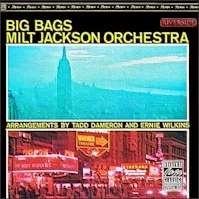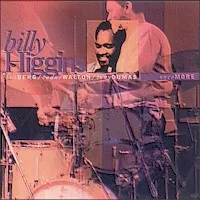Styles: Saxophone Jazz
Year: 2003
File: MP3@320K/s
Time: 65:51
Size: 151,0 MB
Art: Front
( 8:58) 1. 3 + 5 = 4
(14:10) 2. River Of Light
( 9:45) 3. The Plan
(14:38) 4. Angel's Flight
(11:05) 5. Round Midnight
( 7:12) 6. Nostalgia In Times Square
Year: 2003
File: MP3@320K/s
Time: 65:51
Size: 151,0 MB
Art: Front
( 8:58) 1. 3 + 5 = 4
(14:10) 2. River Of Light
( 9:45) 3. The Plan
(14:38) 4. Angel's Flight
(11:05) 5. Round Midnight
( 7:12) 6. Nostalgia In Times Square
Ernie Watts Quartet Alive 2004 provides Watts with a new forum for recording. Throughout his long and fruitful career, he has not previously made a live recording of his own, capturing a stage performance with no editing or overdubs. The chance to hear Watts at immediate heat in the midst of his own music is a special occasion, only available before to his concert audiences. Recording in Germany, he leads his quartet (which features acclaimed pianist Christof Saenger) through originals and some well-chosen classics by Thelonious Monk and Charles Mingus. The musicians stretch their imaginations and soar over a set of airtight arrangements. Released on Watts' own Flying Dolphin label, ALIVE begins a new chapter for the artist. "This is my first recording where I had complete control," notes Watts, "All the creative decisions were mine, from the tunes to the final mix. That freedom produced this CD. It shows who I really am as a musician." http://www.erniewatts.com/discography/alive.html
Personnel: Ernie Watts (tenor saxophone); Christof Saenger (piano); Heinrich Köbberling (drums).
Personnel: Ernie Watts (tenor saxophone); Christof Saenger (piano); Heinrich Köbberling (drums).




















